Paint protection Mercedes GLS. PPF with Matte Polyurethane Film at CarEngineering Studio
The new Mercedes GLS models—symbols of status and prestige. The sleek body with a modern design leaves no driver indifferent, and this vehicle confidently competes with the Audi Q7, BMW X7, and Range Rover, excelling in many areas.
On the road, the Mercedes catches the eye, playfully gleaming in the sunlight with deep glossy colors. Emerald green, diamond white, or ocean wave blue—it will be hard to choose.
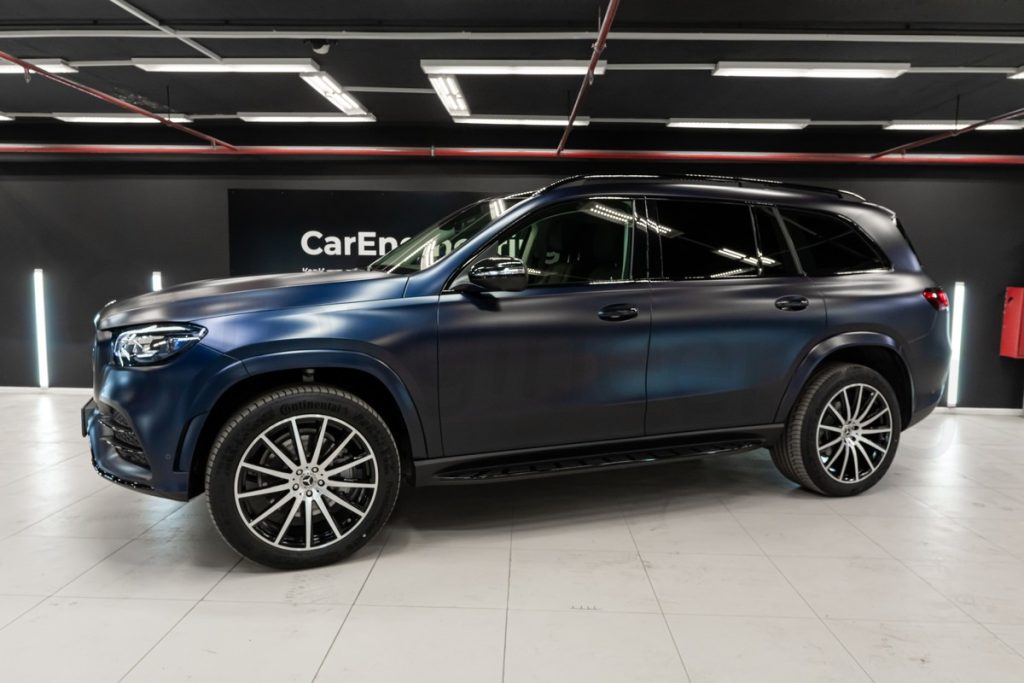
It’s important to understand that over time, the gloss may lose its initial beauty and appeal if you don’t take steps to protect the paintwork in advance. For this purpose, a polyurethane film is the best choice for the GLS. It effectively protects the paint from chemical and mechanical damage, keeping the body in perfect condition.
In today’s review, we’ll explain why polyurethane film was chosen for this car, how it differs from other types of film, and walk you through the process of applying it to the 2020 GLS at CarEngineering studio, showing you the final result.
In addition to protection, the car owner decided to give the body a unique look by choosing a matte finish polyurethane film. This made the Mercedes stand out from other vehicles and once again drew the attention of passersby and drivers to this dream SUV.
Polyurethane film: Key properties and selection criteria for Mercedes GLS. Comparison with other coatings
At CarEngineering, three types of film are used for car wrapping: polyurethane, hybrid, and vinyl. The material is chosen based on the client’s preferences and the purpose of the wrap.
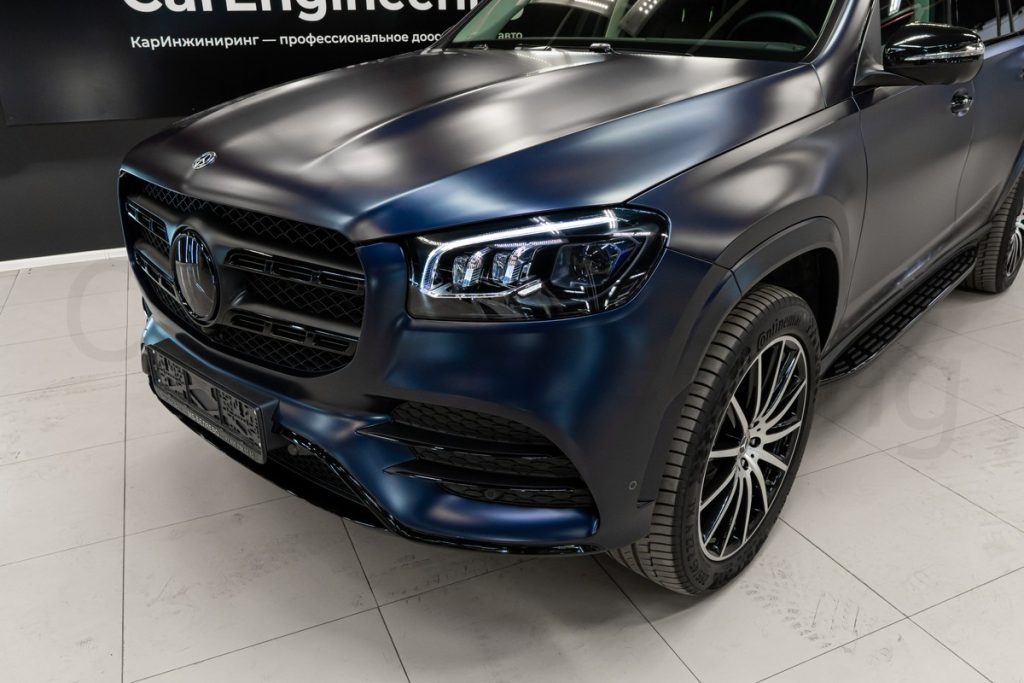
For example, vinyl is ideal for changing the design of a car. Its variety of textures and colors allows for creative solutions and unique designs for the body.
Vinyl protection covers tree branches, shrubs, sand, light road chemicals, bird droppings, and harsh car washes, which may cause scratches on the body. This is sufficient for minimal vehicle protection.
Wrapping a Mercedes GLS with film
Vinyl film doesn’t have any special protective properties. It handles temperatures well, offering consistent protection in both summer and winter. The lifespan of the coating is 2-3 years. This is beneficial for those who like to frequently change the vehicle’s appearance. However, if your primary goal is protection, other coatings are worth considering.
Hybrid films are next in the ranking. Though the color palette is not as diverse as vinyl, hybrids offer superior protection. These films are thicker, ranging from 140-190 microns compared to vinyl’s 100-150 microns.
Hybrids protect the body from branches, sand, careless washes, chemicals, and small stones. Low-speed debris like gravel won’t damage the paint but might leave a scratch on the film.
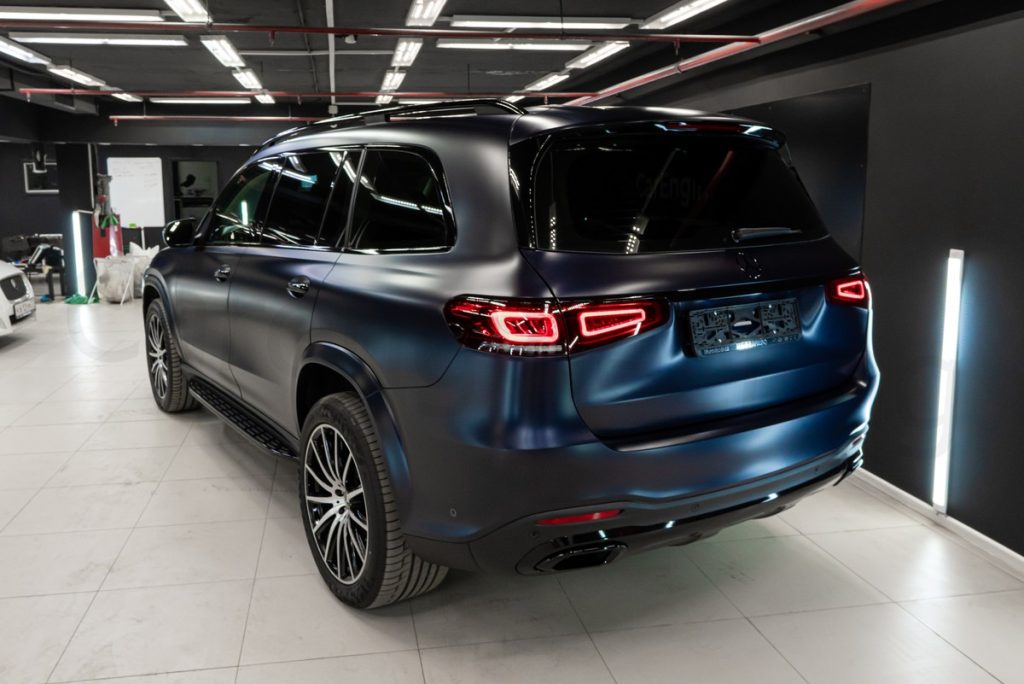
But scratches aren’t a problem for hybrid coatings. Thanks to its self-healing properties, small scratches on the film disappear when exposed to heat. The easiest way to restore the film’s original shine is by leaving the GLS in the sun for a few hours.
Hybrid films withstand high and low temperatures and fluctuations, providing consistent protection.
Despite these advantages, hybrid films last only 2-4 years. This option suits those wanting to see how protective film works on the GLS before upgrading to the most reliable choice: polyurethane.
Polyurethane film outperforms both vinyl and hybrid in every aspect.
It’s the thickest, at 150-210 microns, and provides comprehensive protection against tree branches, sand, small stones, bird droppings, insect residues, resins, oils, road and washing chemicals, and mold. Polyurethane excels at protecting against careless washing, parking mishaps, and accidental curb scrapes that could cause scratches and scuffs on the body.
The working temperature range for polyurethane is from −70°C to +100°C. It remains elastic and durable in all weather conditions, preventing the film from stretching or cracking.
Like hybrid film, polyurethane also has self-healing properties. It can last 5-8 years on a car, maintaining its appearance by healing scratches on its own. In essence, polyurethane is a long-term investment. Wrapping a Mercedes GLS once will ensure long-lasting protection with minimal maintenance required. After years of use, the body will still look brand new when the film is removed.
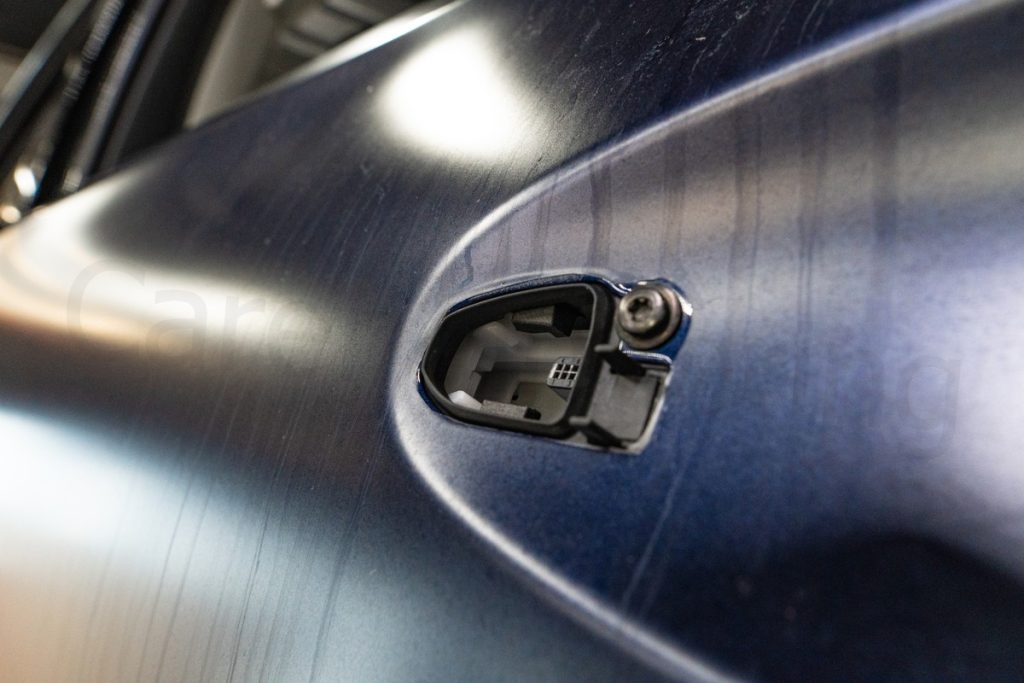
But that’s not all. For those who want not only to protect but also to enhance the body’s appearance, we offer different types of polyurethane films. You can choose between glossy and matte finishes. Glossy film is completely transparent and undetectable once applied, enhancing the vehicle’s gloss and preserving its original color.
Matte film softens the GLS’s color and adds a unique touch, emphasizing details and shapes. The color deepens, giving the car a more prestigious look.
In today’s review, matte film was chosen for the Mercedes GLS. After application, the flawless blue color acquired a chameleon effect, shifting from sapphire to sky blue under sunlight.
The application process of matte film on a 2022 Mercedes GLS at CarEngineering studio
Before starting, the technician discusses the wrapping options with the client. You can choose between partial or full wrapping.
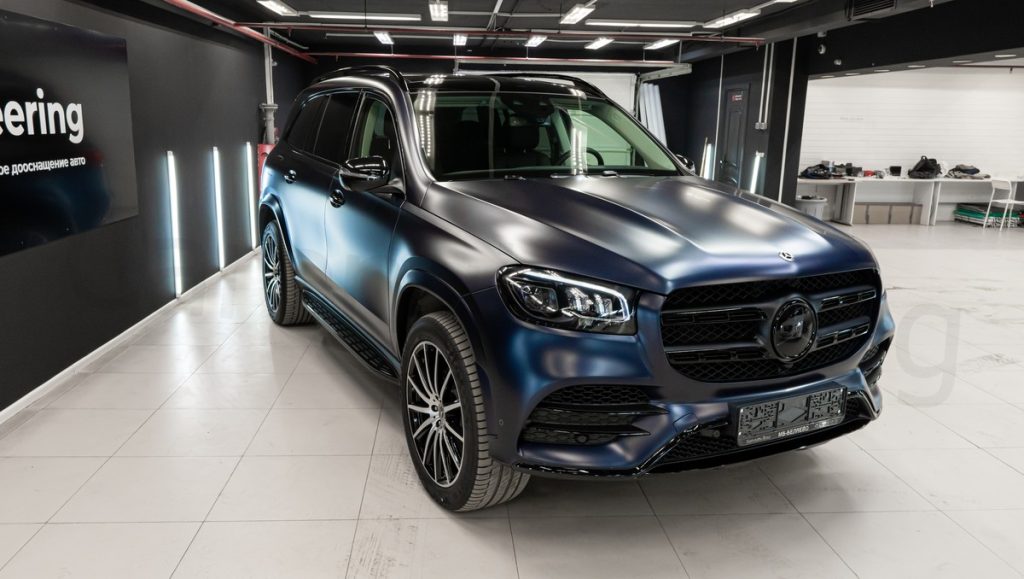
Partial wrapping is ideal for transparent film, as the result blends seamlessly with the untreated parts of the car, making the transition invisible.
A partial wrap typically covers the bumper, hood, headlights, A-pillars, mirror covers, front fenders, and door handle cups. Partial wrapping is justified if you don’t drive the car often, as the risk of damage to untreated areas is lower. However, for daily use, a full wrap is recommended.
A full wrap covers all body parts, providing maximum protection. The car is evenly shielded from chemical and mechanical damage, eliminating the risk of scratches or scuffs on untreated areas.
Both matte and transparent films look stunning on the fully wrapped Mercedes GLS, giving the car the desired effect. Since the owner chose a matte finish for enhanced protection, the vehicle was wrapped entirely.
The full wrapping process takes 7-8 days and costs from 145,000 rubles. Partial wrapping of vulnerable areas takes 2-4 days and costs from 60,000 rubles.
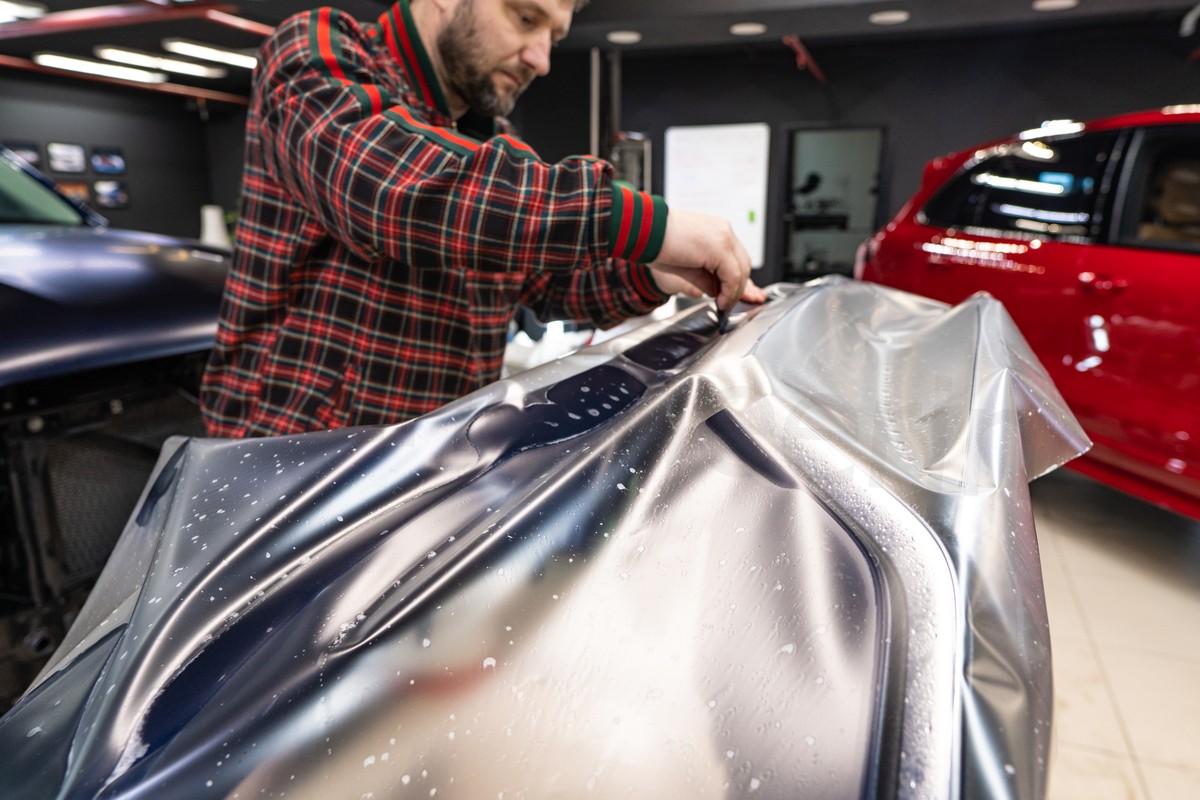
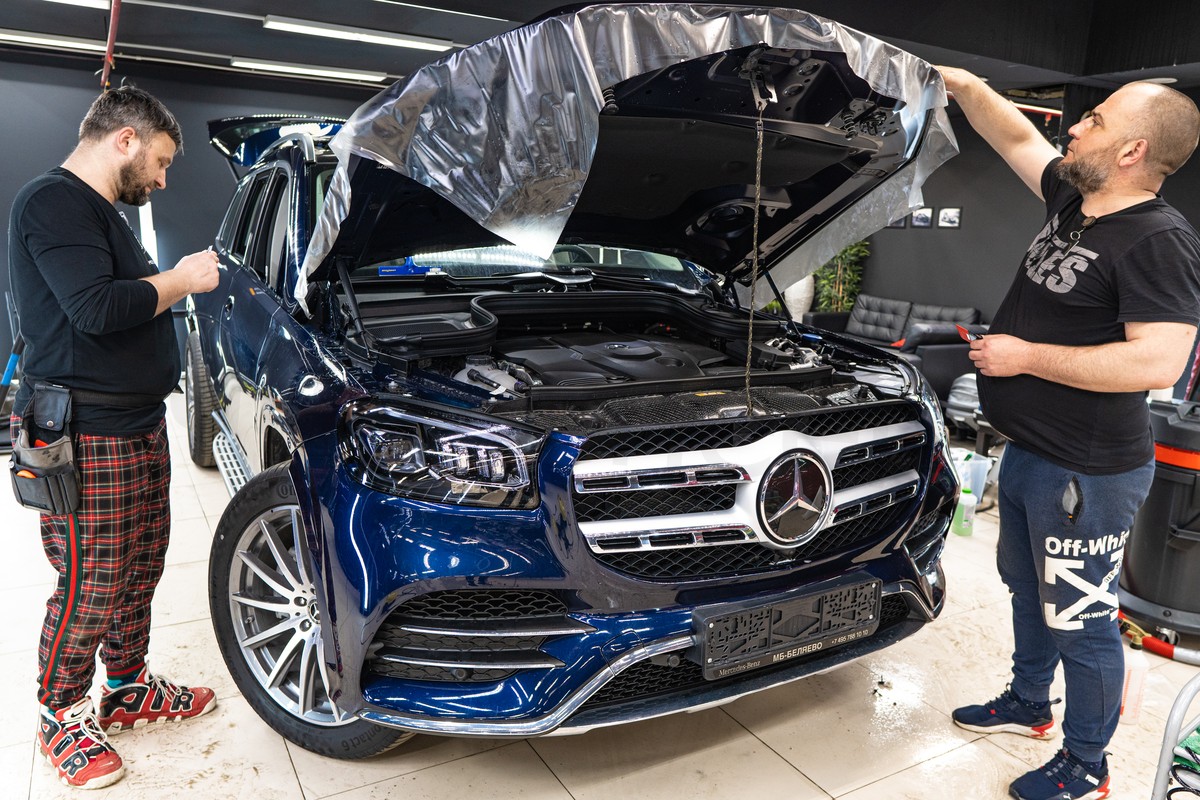
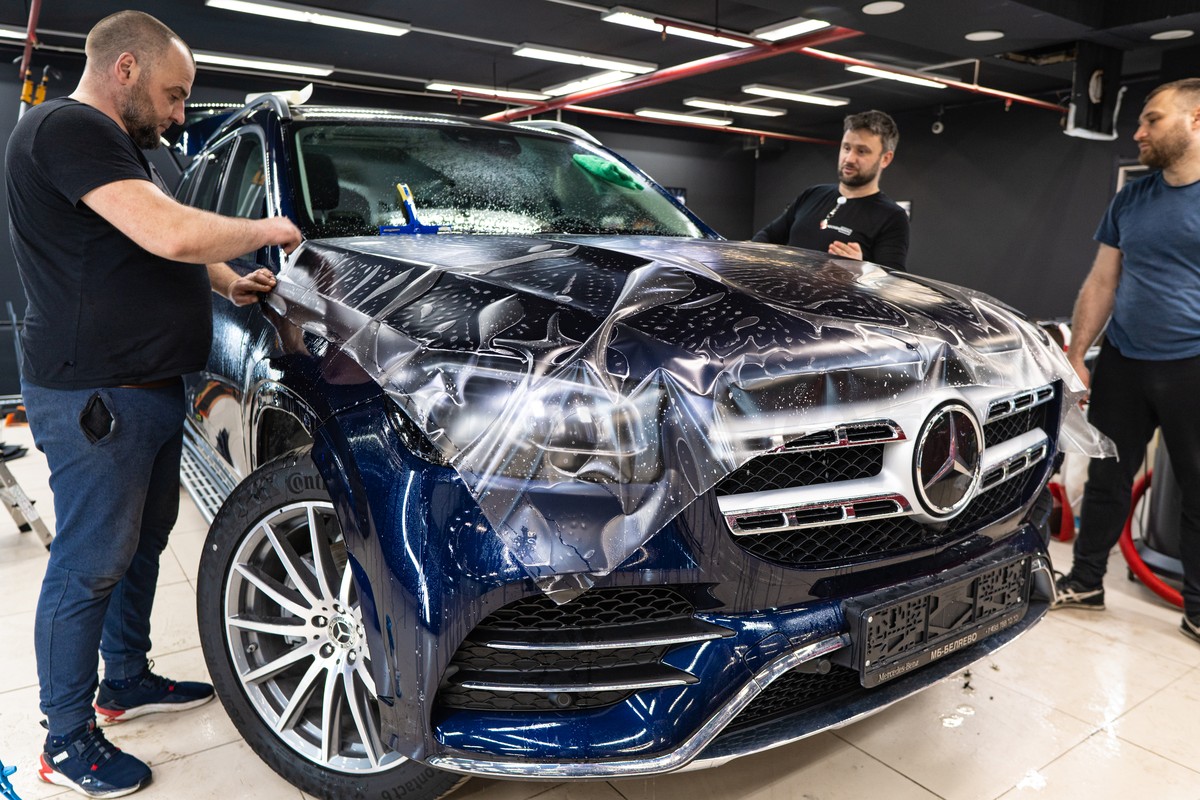
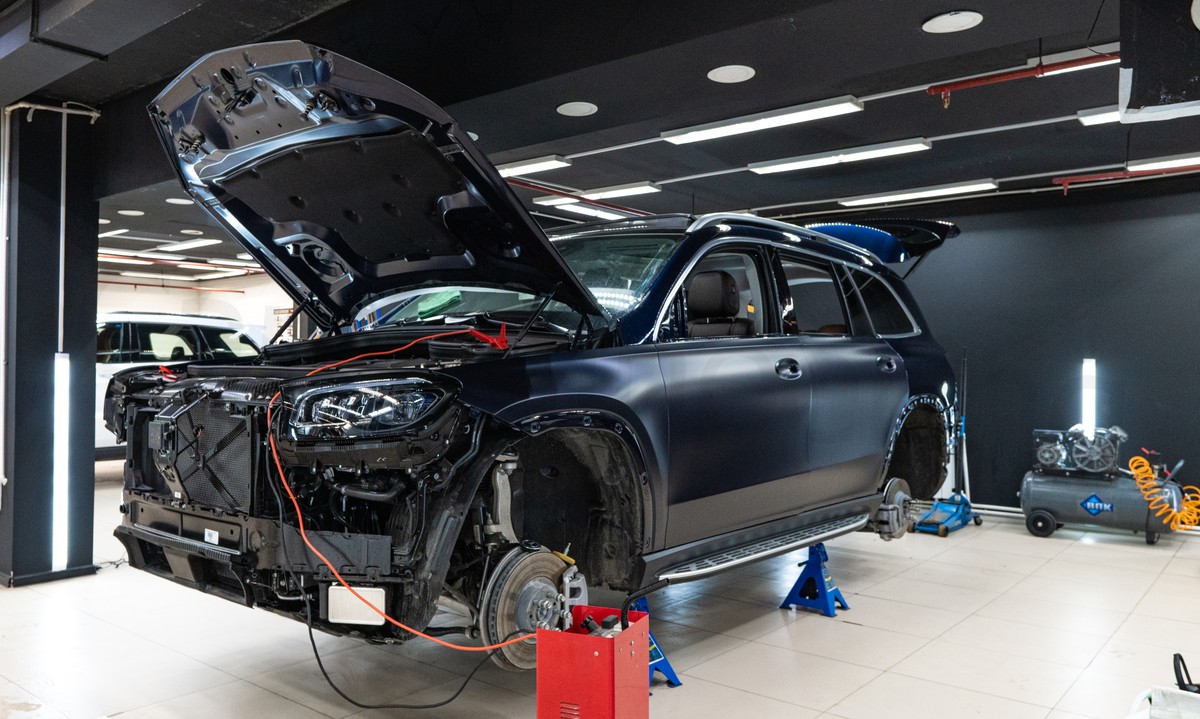
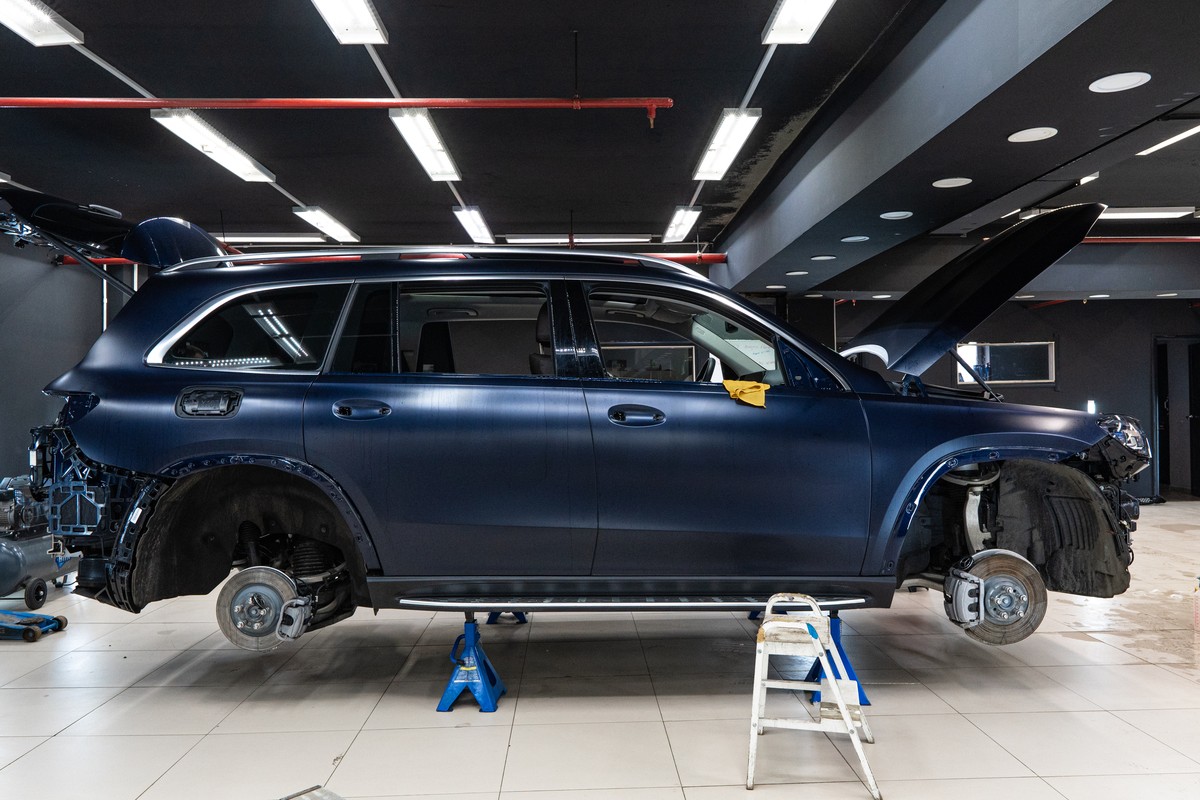
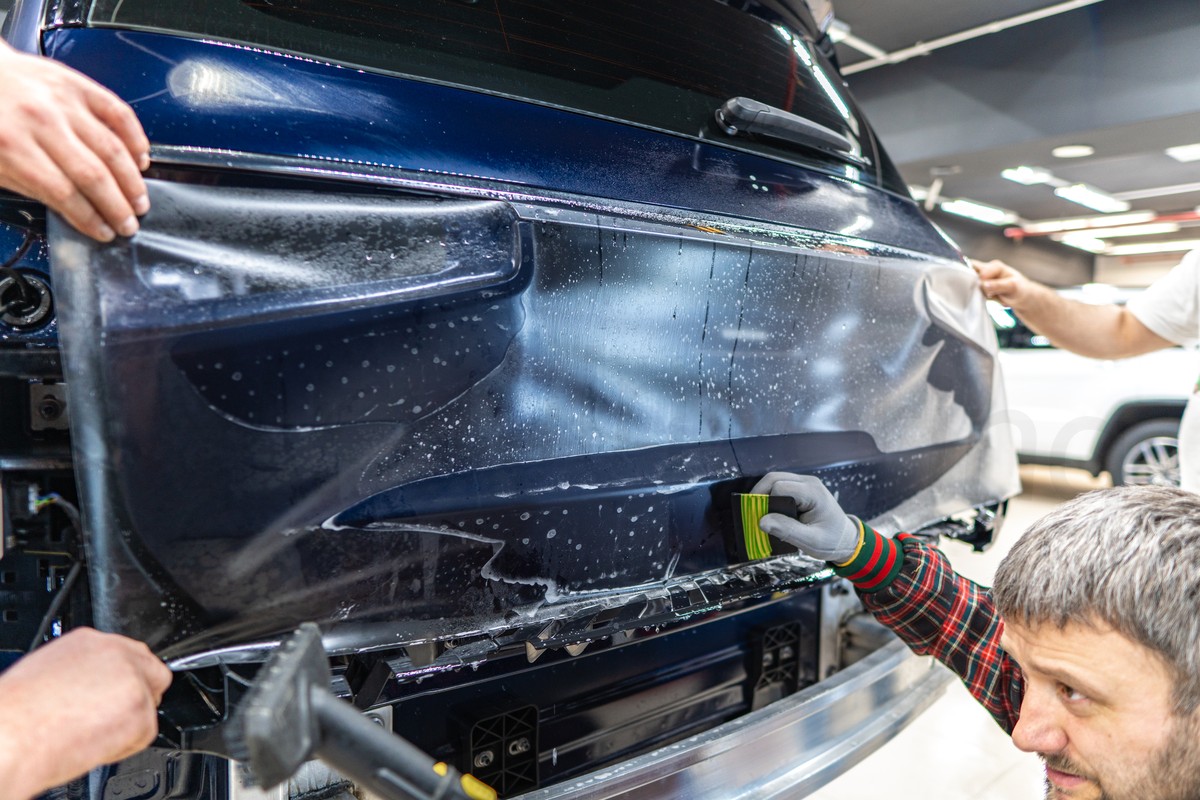
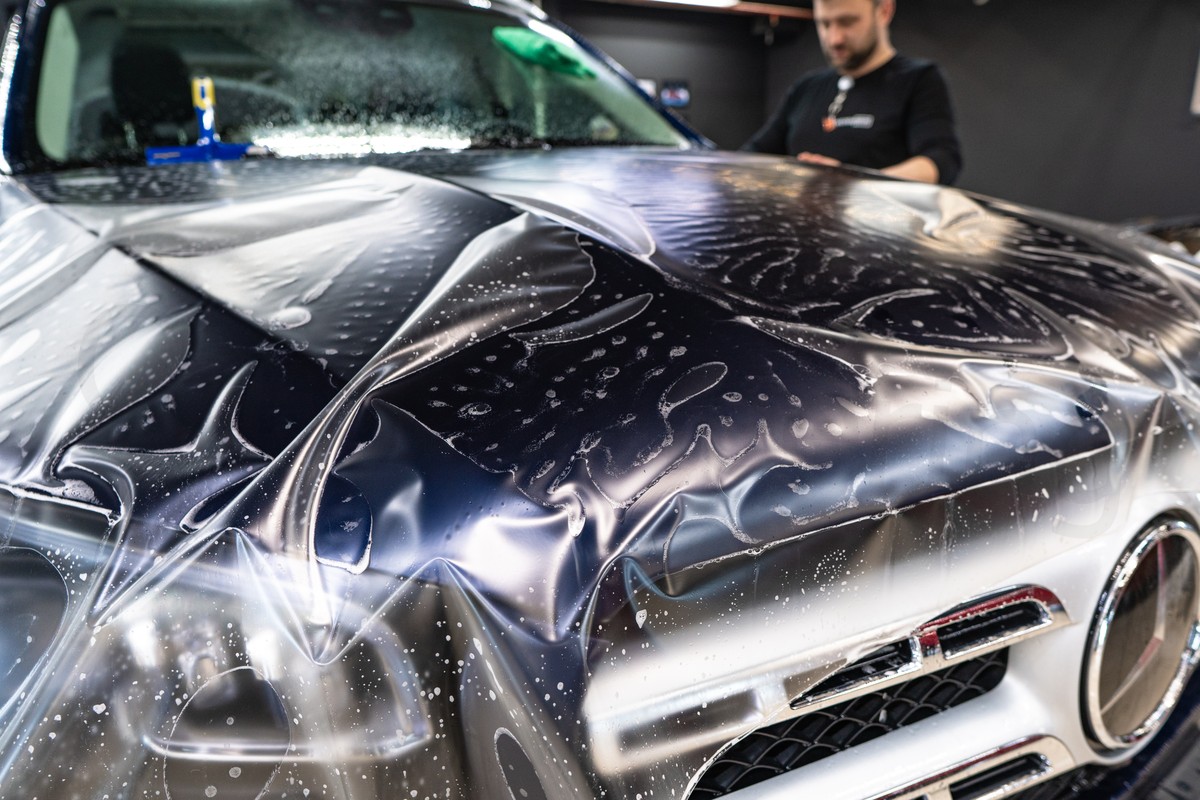
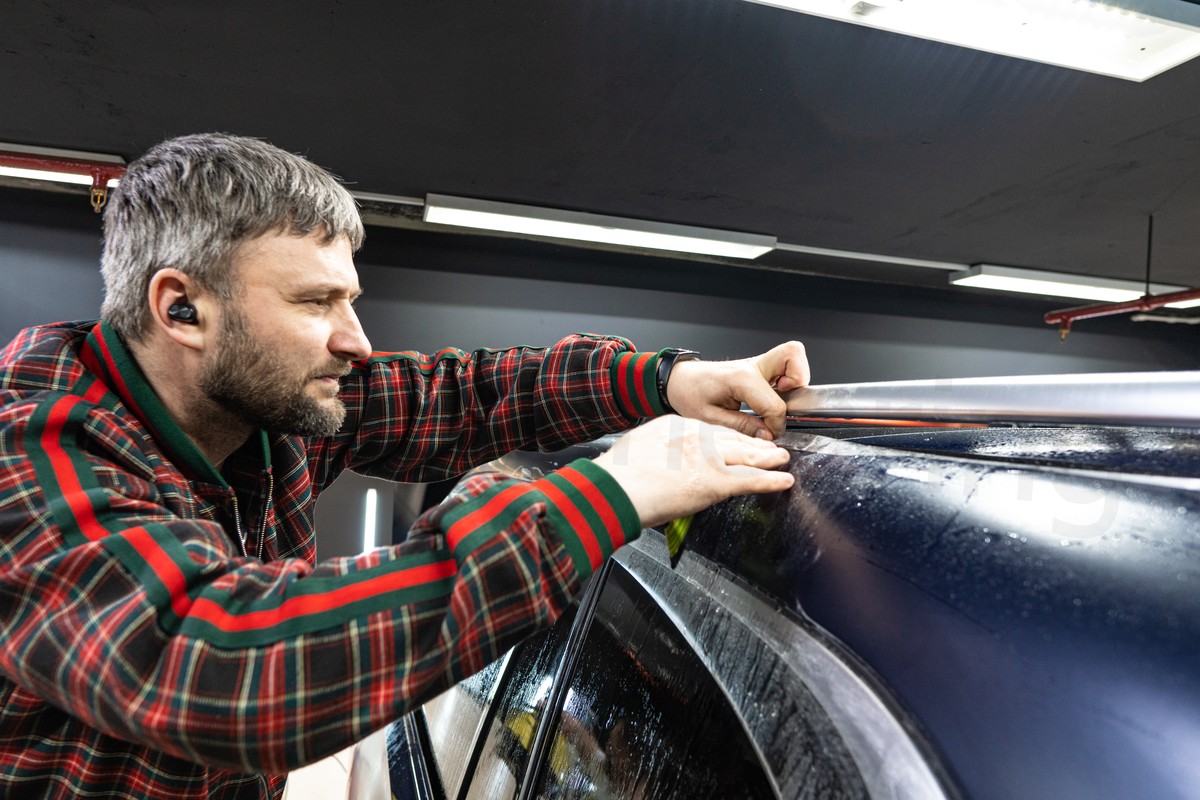
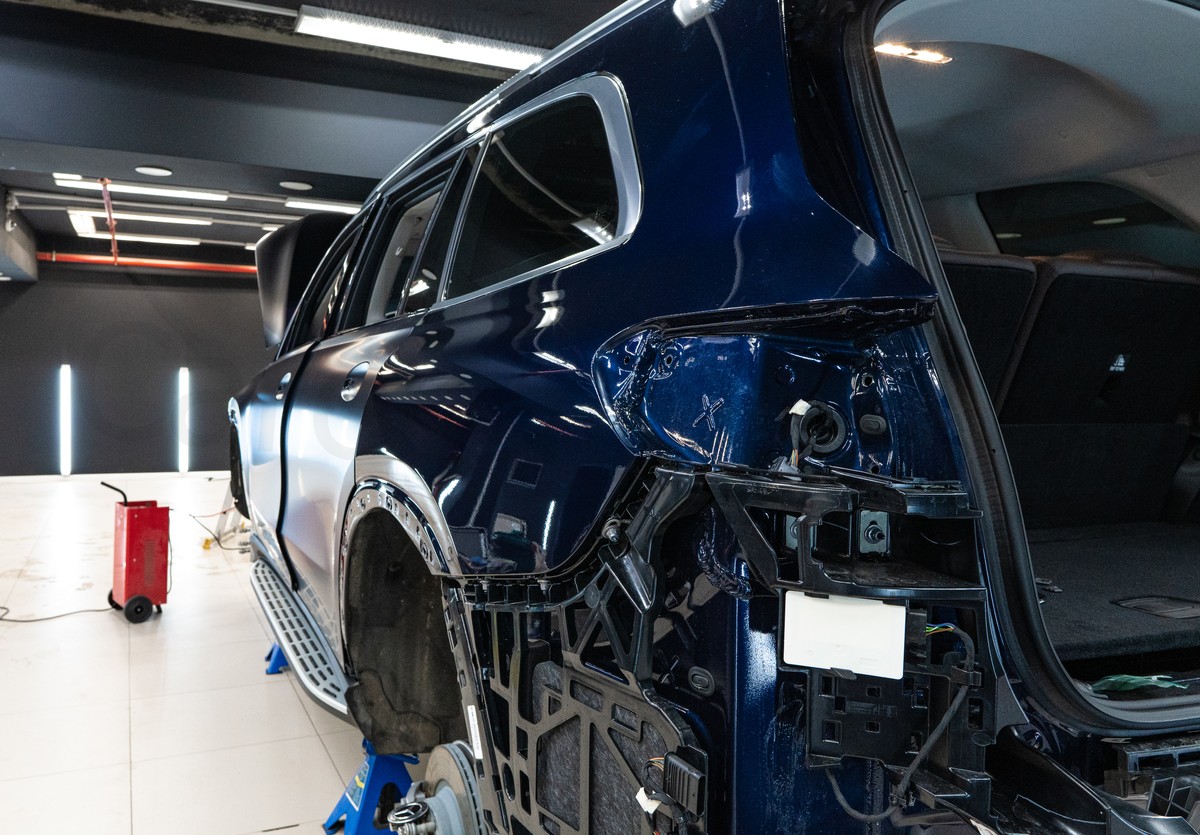
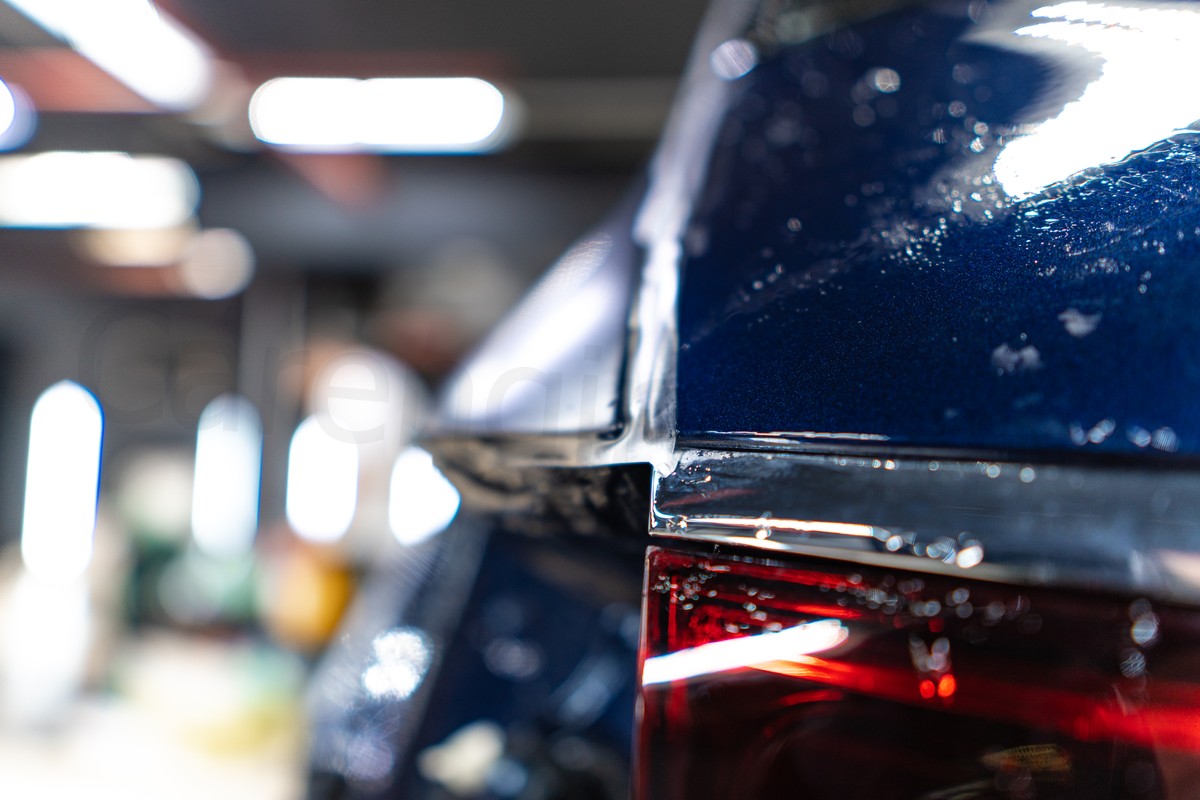
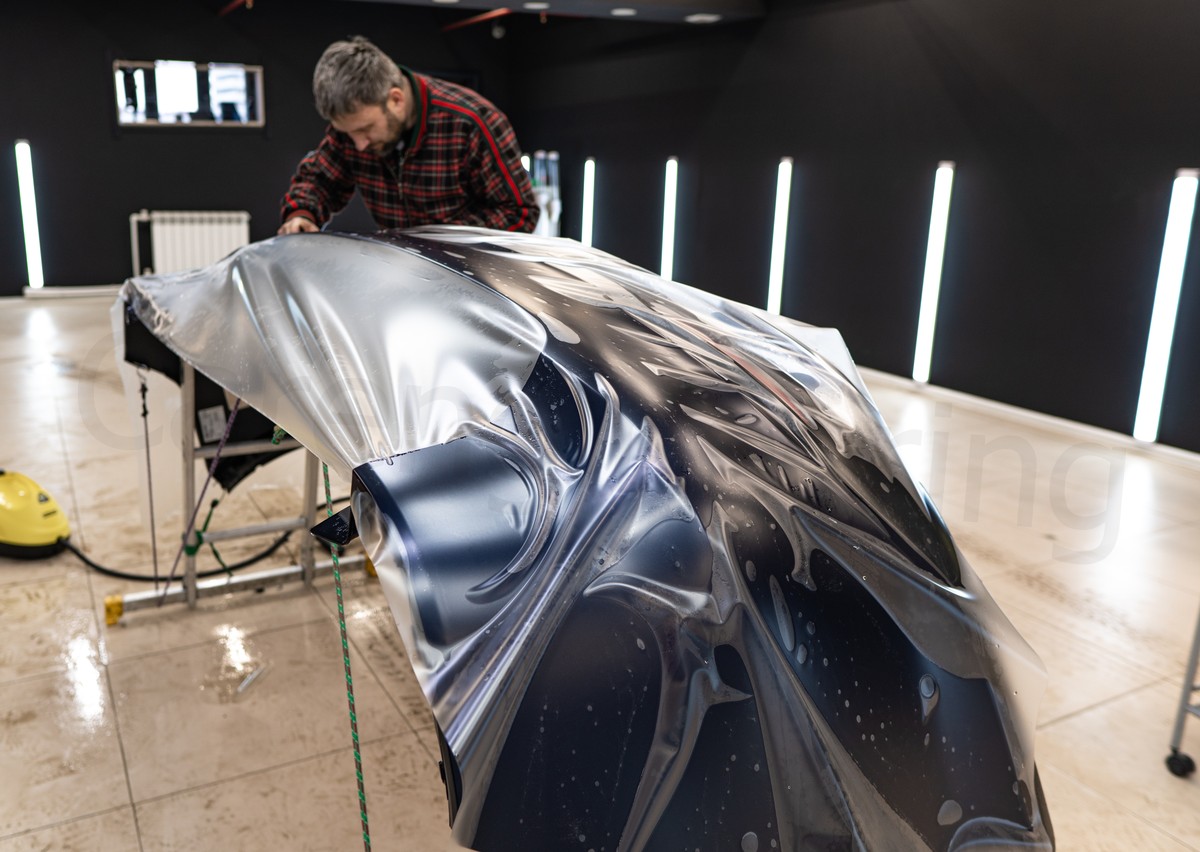
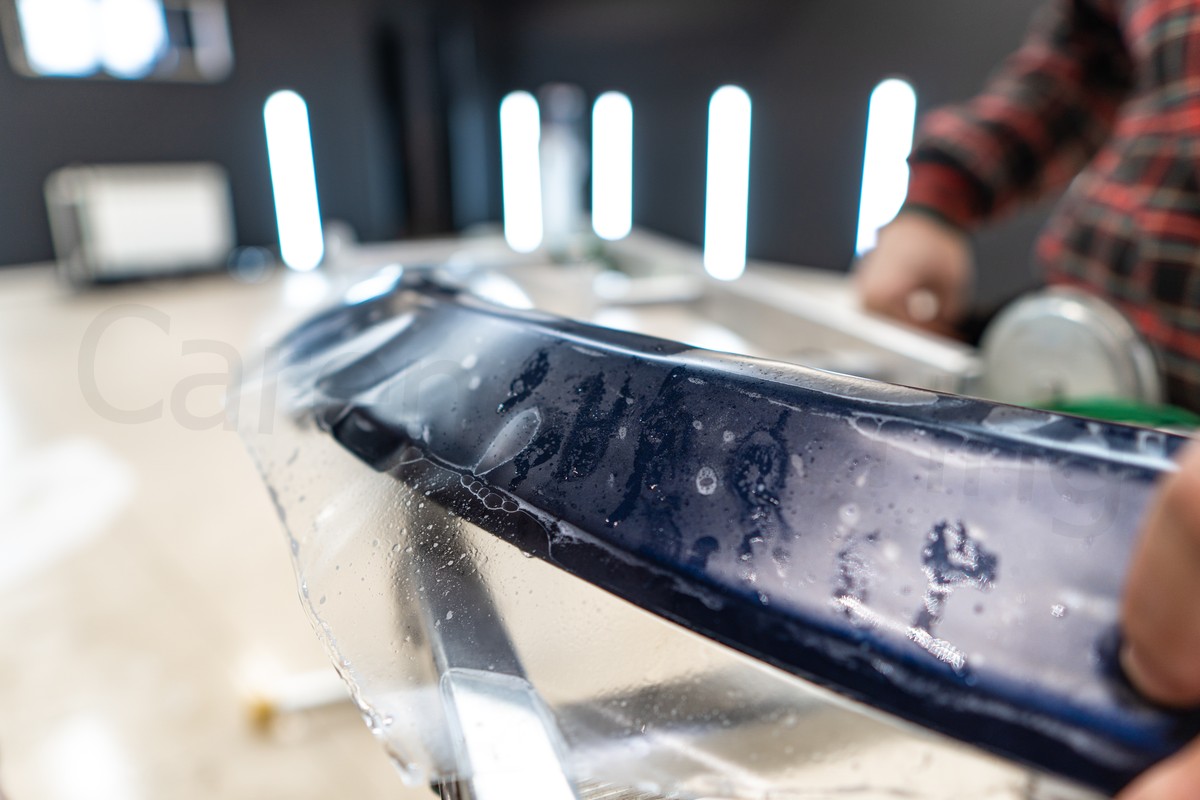
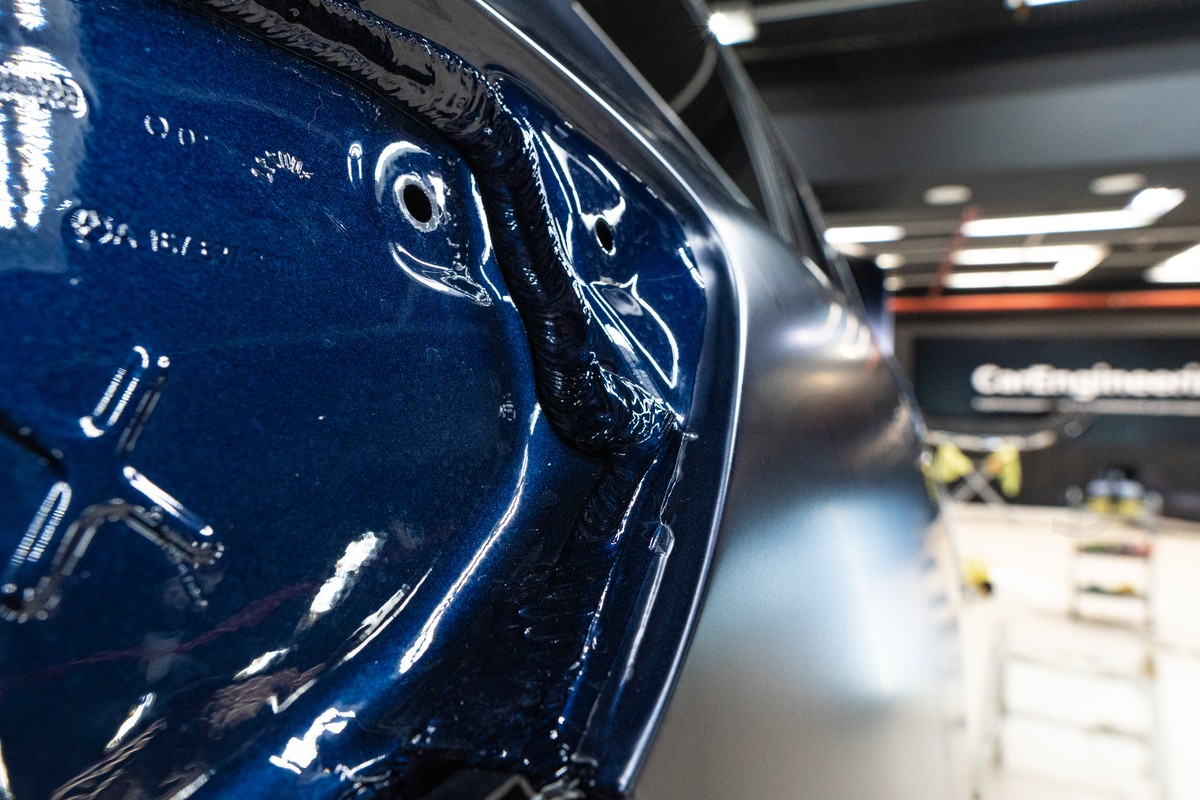
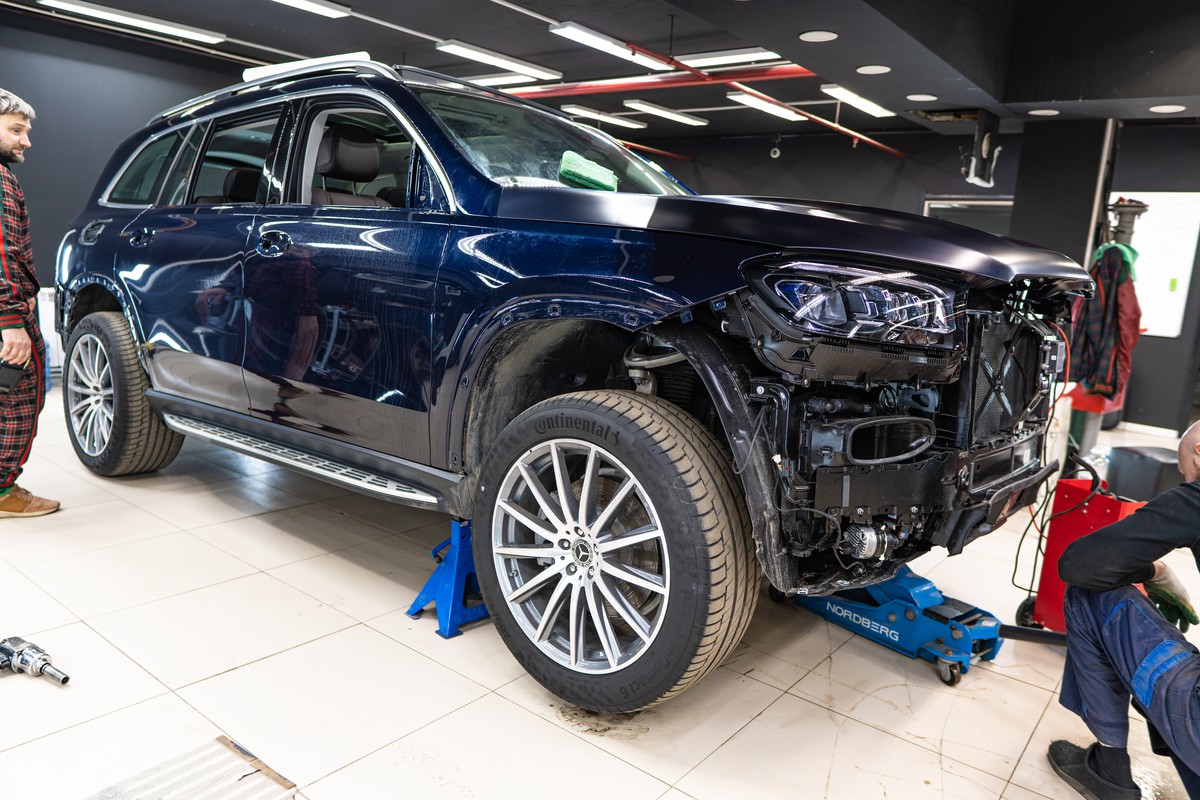
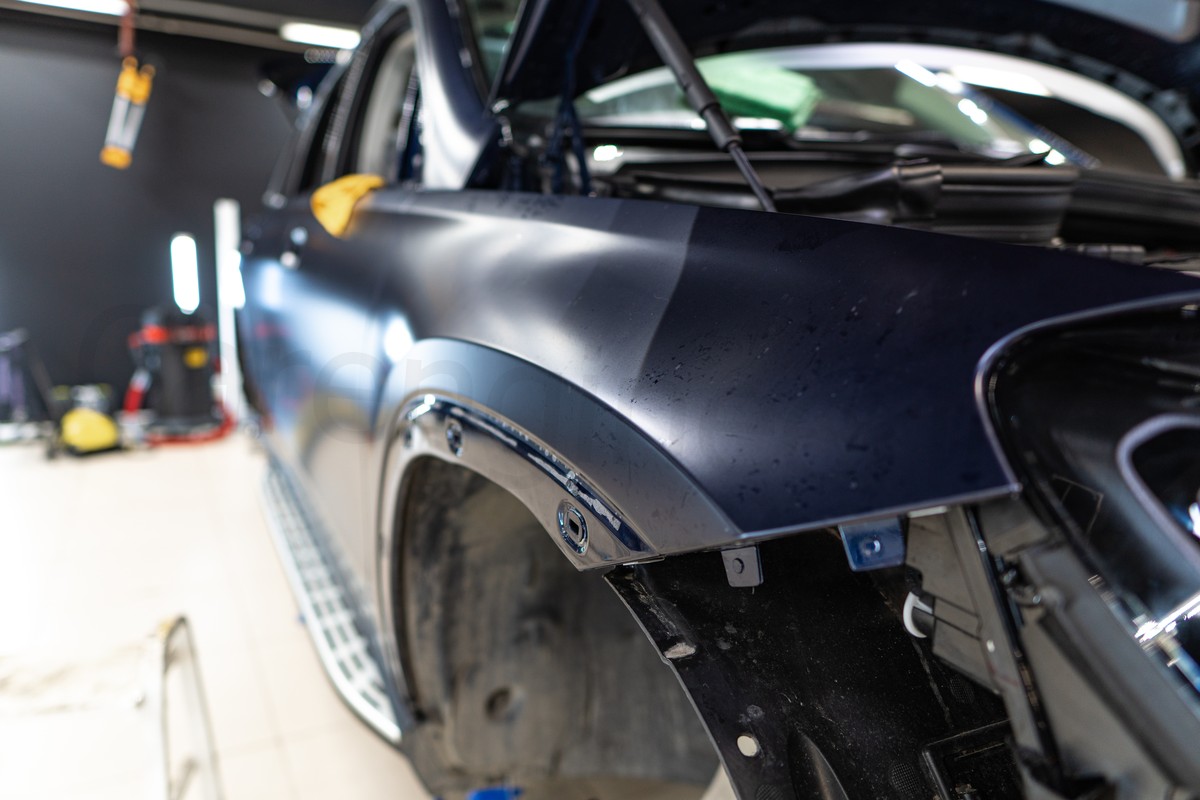
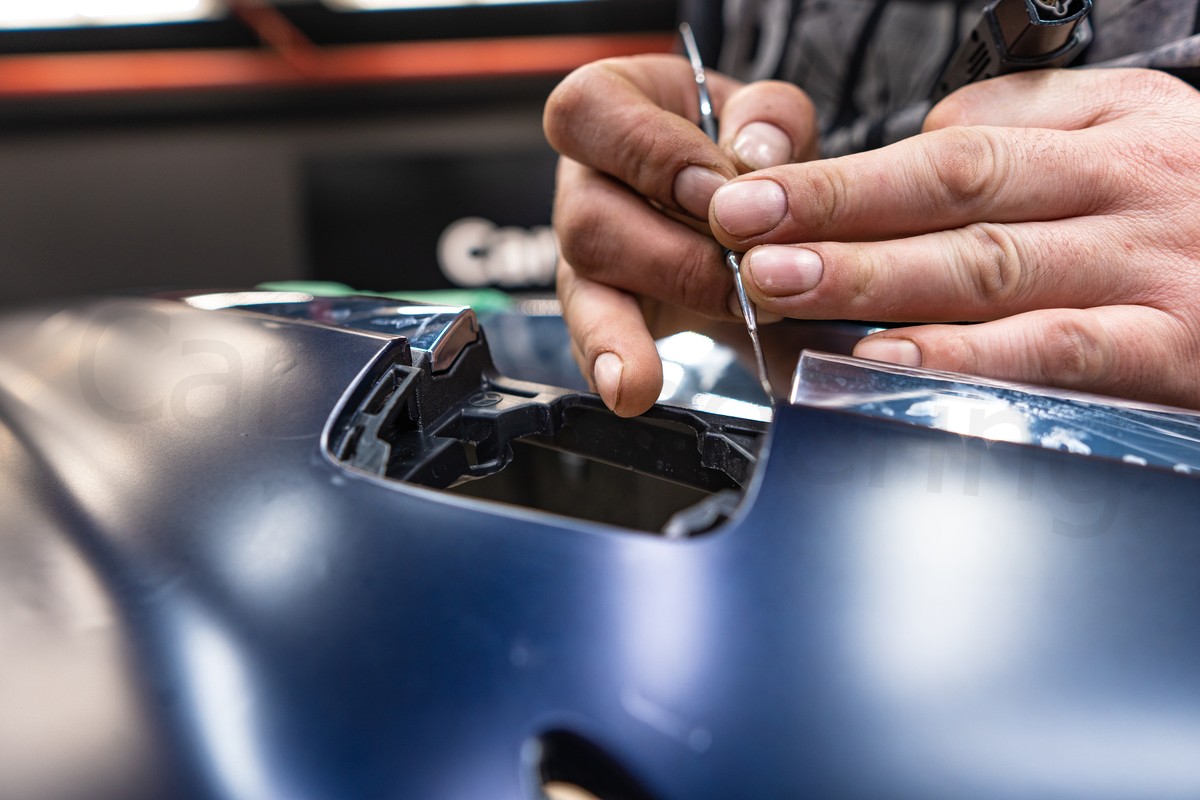
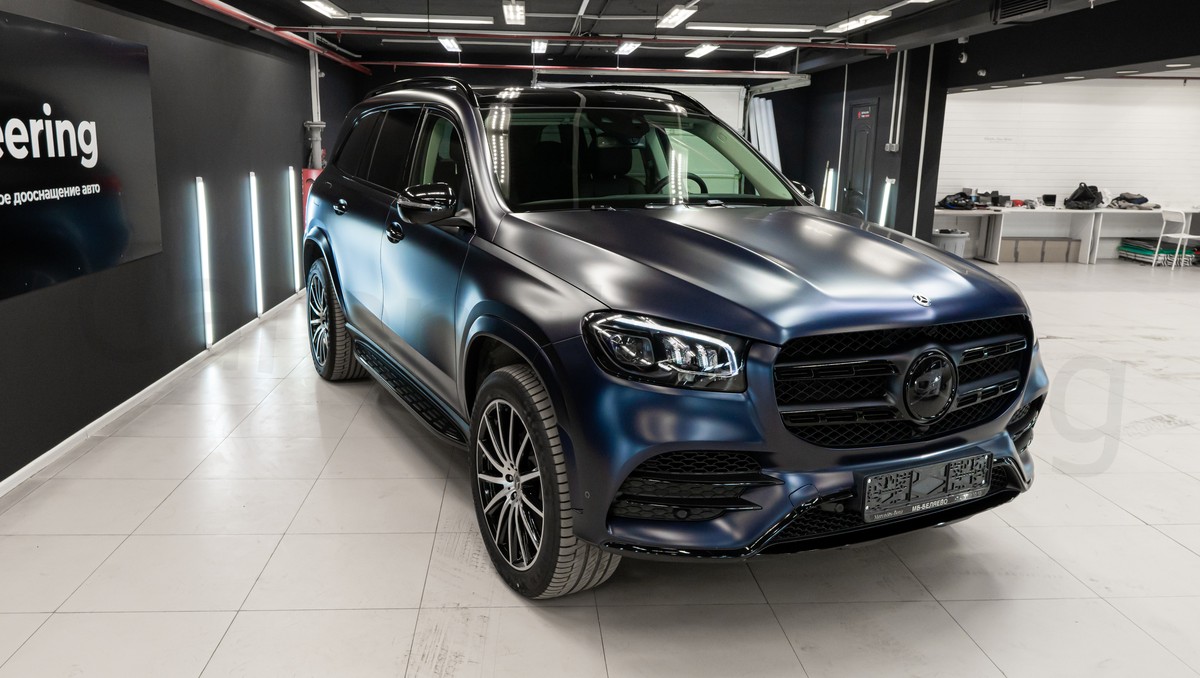
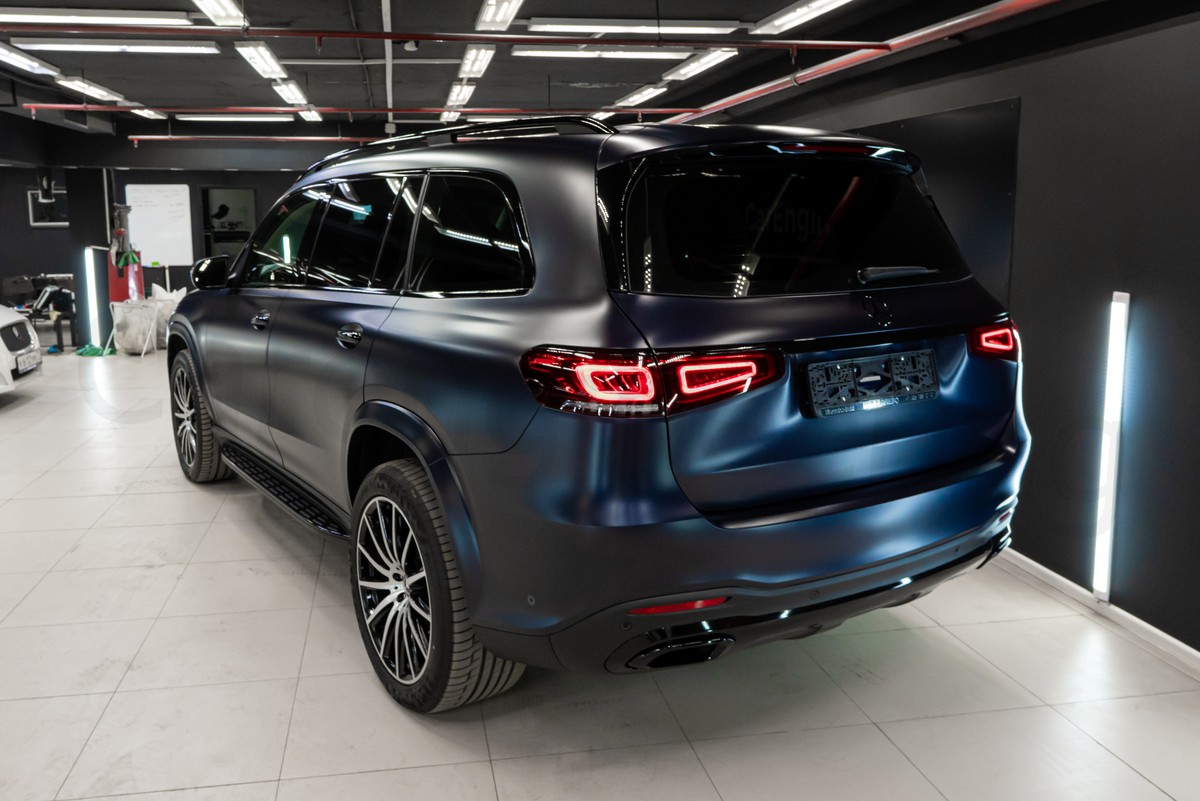
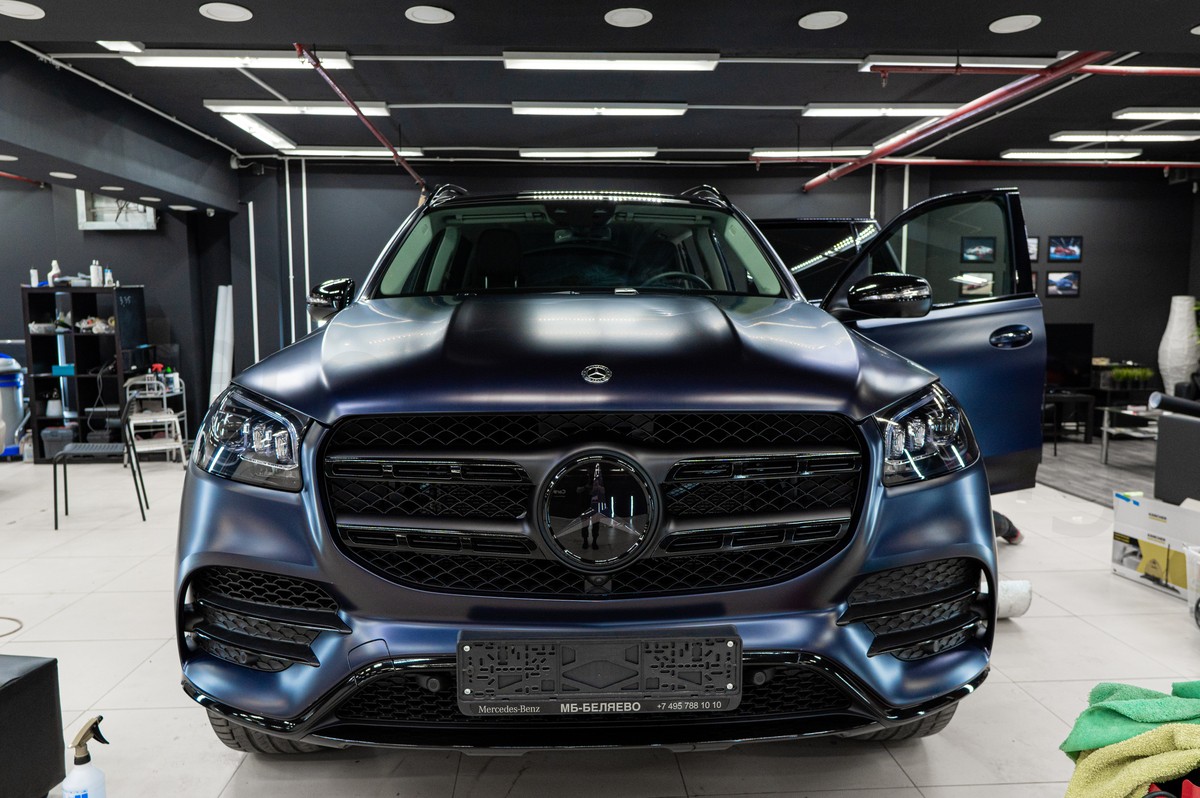
We will be glad to work with your car. Please contact us
☎️ 056 666 5810
📞 Whatsapp +971 56 666 58 10
We are located in Dubai – link – Al Quoz 2

